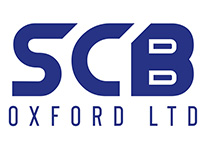Why Aggregates Are Used in Concrete
Concrete consists of three main ingredients: cement, water and aggregates. Your base concrete mix will have different properties depending on how these ingredients are proportioned. Aggregates are often seen as a filler material, but their role in concrete is more varied than that. Let’s look into this further below.
Workability
Workability refers to how easy concrete is to mix, transport, place and compact or how easy the concrete is to work with. The amount and size of aggregates used in a mix have a direct influence on a mix’s workability. Rounded, small and smooth aggregates, such as natural, uncrushed stone found in riverbeds, will mean high workability. This is because more water is required in the mix when fine aggregates are used.
With larger, more coarse aggregates, less water is needed so the mix is thicker – and harder to work with. The trade-off here is strength; more, larger aggregates are used for high-strength concrete mixes while the opposite is true for smaller aggregates. This is why at SCB we stock a whole range of different sizes of aggregate and have a selection of different types of aggregate.
Cost
Aggregates in concrete can account for between 70-90% of the overall weight and 60-80% of the volume. Did you know that aggregates are the least expensive material utilised in concrete, giving builders a far more attractive cost proposition? With the inclusion of a large, coarse aggregate, builders can lower construction costs due to the introduction of a cost-effective aggregate compared to the costly introduction of cement.
All our aggregates come in various shapes, sizes, textures and colours making it a fantastic addition to a concrete mix to aid in gaining different design requirements. The composition of an aggregate can be either rough or smooth; a smoother aggregate can improve workability while a rougher aggregate can create a stronger bond.
Aggregates allow builders and designers more flexibility to meet varied construction requirements. Aggregates will always influence the overall properties of the mix from consistency and workability to strength and durability. But exactly why are aggregates used in concrete?
Stability
When you utilise an aggregate in a concrete mix, you find that the mix can offer greater volume stability. As aggregates have a lower shrinkage potential than say, cement, it helps prevent the possibility of cracking.
Strength
Your choice of aggregates will have a direct impact on the final strength of your mix. Lightweight aggregates are often used in non-structural concrete mixes, while high-density aggregates are used for high strength mixes, such as foundation concrete, and even pipeline ballasting. Fine aggregates are chosen to produce lightweight prefab concrete blocks and pavement concrete.
Choosing quality, tested aggregates is vital, but so is ensuring they are mixed together properly. You want to have a mix that minimises empty space between aggregates this requires proper aggregate gradation. The distribution of aggregates is possibly the most influential aspect of any mix. Getting this wrong leads to weaker concrete with poor workability and a high chance of shrinkage. Making the right discussion is vital. If you are unsure, speak to SCB today!
Finding The Right Balance
While cutting the cost of concrete sounds appealing, the right balance needs to be met otherwise the mix will not match your requirements. Overloading a mix with aggregates will make it cheaper, but it will also make it significantly harder to work with. The cement paste won’t bind the aggregates together and this weakens the mix.
For an ideal balance, you need to choose the right proportion of aggregates to minimise the amount of cement required, while preserving the necessary strength for your project. The proportion of ingredients depends on the type of aggregates you’re using, their size, shape and texture as well as their natural moisture content.
Choose Quality Aggregates
We always recommend choosing the right aggregate for the job, not the cheap or fast option. Your choice of aggregates will affect your concrete from initial mixing to the final pour and compaction. We always recommend choosing high-quality aggregates. This also applies to recycled aggregates as well as raw mined aggregates, such as gravel, sandstone and crushed stone.
When selecting aggregates for your project, you should only use reliable and reputable suppliers. Choose SCB for all your aggregate needs. We hope you found this blog interesting and informative. If you would like to inquire about our aggregate service, then call us today on 01856 520064 or fill in a contact form.

